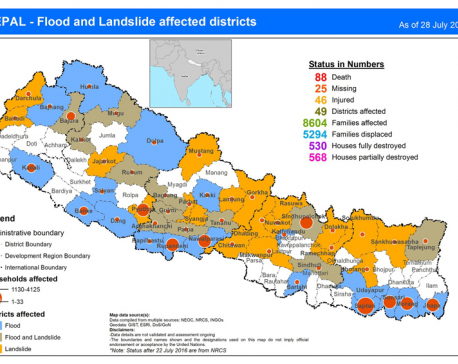
OR

It’s easy to get bogged down by all of the noise from friends, family, blog posts screaming at you to cut back on spending and sometimes it becomes really hard to separate good advice from the bad. To get you started, The Week asked a few people around town what is that one thing they do save money. Here are some pretty smart answers. There are no “ultra frugality” tips, and definitely no guilt trip here – just some actionable ways to save money in the real world.
“Find out how much you spend in a month and make a budget.”
Tracking your spending is the best way to identify areas where you can save money. Written out in black and white, most people are surprised how much they spend and areas where they can cut back become very clear. All you need to do is track your spending for one month to get a good idea of where your money is going. Many people think, “Oh, I don’t need to do that. I already know where I spend my money.” The truth is surprising to most people – they really don’t realize how much they spend. You can’t say that you know how much you spend unless you have tracked your spending.
“I didn’t realize I was spending almost half my salary on clothes every month till I wrote down all my expenses. I had so many clothes that I hadn’t worn and yet I would be buying more every month,” says Surabhi Pradhan. Now that she has set aside a budget for clothes, she doesn’t run the risk of overspending in that area.
Once you have identified where you are spending your money, and you see areas where you would like to reduce your spending, you need to set an amount that you think is reasonable to spend and stick to it. To stick to your spending limits, you need to create a spending plan, and then follow it by only spending the amount you have separated for a particular area. It’s quite simple really, and with practice you’ll even get good at it, says Pradhan.
“But before all that, pay yourself first.”
One of the best saving strategies is to pay yourself first. What this means is that you designate a certain amount of your paycheck as your pay and you pay that money to yourself before you pay your bills or anyone else. This can be any amount that you decide. The important part is that you pay yourself first rather than last. Most people pay all of the bills first and then save anything that might be left over. For most people, that method of saving doesn’t really work because nothing is left over to save.
“I set aside Rs 20,000 every month as soon as my account is credited with my salary,” says Preeti Thapa. This habit has helped her build a substantial savings account over the past two years. “Since I don’t use this money, I feel secure in the knowledge that I have an emergency fund or that I have some money set aside for whenever I want it,” she explains.
If you pay yourself first, then money will get saved because paying yourself is now your first priority. The nice thing about this method is if your budget is a little tight, it forces you to make adjustments elsewhere and your savings continue to grow.
“Learn to do basic household maintenance yourself.”
“I enjoy the challenge of learning new skills and the satisfaction of accomplishing tasks. I’m now pretty good at basic plumbing, interior painting, and bike maintenance. I’d like to learn and improve basic construction skills too. I see it as both entertainment and expense avoidance. Occasionally, it also becomes exercise,” says Swarup Shrestha, who hasn’t had to call a plumber or an electrician at home in the last five years.
According to Shrestha, there are many household things you can learn to do yourself by watching YouTube videos. Sometimes problems like a beeping invertor or a leaking tap have such simple solutions that you don’t want to be wasting money on ‘expert’ help. “And since technicians charge quite high these days, and there is always one thing or the other that needs fixing around the house, you will be saving quite a lot,” he says.
“Invest in good quality products that will last.”
Many people are guilty of buying things that are cheap. We think we are being smart and saving money when we do so but the fact is that cheap stuff is cheap for a reason. Yes, sometimes you can get lucky and get a steal deal but often times that cheap gadget breaks down, the Rs 500 shoes falls apart in the second wear, and that fancy looking watch stops working in less than a month. “Invest in good pieces that will last you a while rather than cheap things that will have to be replaced in less than six months,” says Geeta Singh, who never buys anything just because it is cheap. She carefully considers each purchase and sticks to good brands while buying electronics and other household items. “You have to look at your purchases as investments and, in the long run, you will find that you are actually saving some serious cash,” she says.
“Take in a renter. Share your living space.”
Sharing your living space may seem unappealing at first, but it’s a great source of extra income. “I always encourage people to at least consider getting a home that could allow them to get some rental income,” says Sudhir Pradhan. And Pradhan speaks from experience. He and his wife have had renters for the past 15 years. “The beauty of it only begins with the monthly rent you are collecting,” he says, adding that it’s actually nice having other people around. Even if you don’t have a proper house, all you need is an extra room to take in a boarder and raise some cash and help pay your bills.

You May Like This

Smart Telecom's SmartCell opens Smart Centre in Putalisadak
KATHMANDU, Jan 24: Smart Cell has established a new Smart Centre at Putalisadak, Kathmandu. The centre aims at providing the... Read More...

Smart Cell opens Smart Centre in Kumaripati
KATHMANDU,Dec 26: Smart Telecom has established a new customer service center named Smart Centre at Kumaripati, Lalitpur. ... Read More...

Save the hills to save Nepal
Nepal’s hills and mountains which once captured the imagination of the West as the land of Sangri La stand on... Read More...




Just In
- MoHP cautions docs working in govt hospitals not to work in private ones
- Over 400,000 tourists visited Mustang by road last year
- 19 hydropower projects to be showcased at investment summit
- Global oil and gold prices surge as Israel retaliates against Iran
- Sajha Yatayat cancels CEO appointment process for lack of candidates
- Govt padlocks Nepal Scouts’ property illegally occupied by NC lawmaker Deepak Khadka
- FWEAN meets with President Paudel to solicit support for women entrepreneurship
- Koshi provincial assembly passes resolution motion calling for special session by majority votes







_20220508065243.jpg)






Leave A Comment